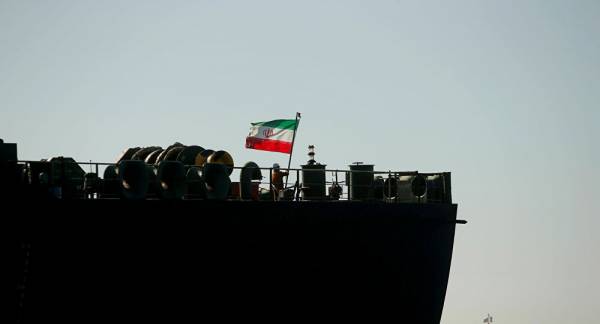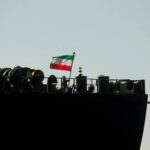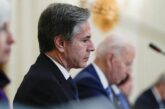
Last week, the Iranian Foreign Ministry signalled the Islamic Republic’s readiness to ship additional fuel to Lebanon in order to alleviate the “suffering of the Lebanese people”, who have been hit by an economic meltdown.
Iran’s Foreign Ministry spokesman Saeed Khatibzadeh has warned Washington against hampering Tehran’s trade with other countries, apparently referring to Iranian fuel shipments to Lebanon.
The remarks come a week after he announced that Iran was “ready to send fuel again to Lebanon if needed”, adding that the Islamic Republic “certainly cannot see the suffering of the Lebanese people”, who are currently in the grip of a fuel crisis.
©
REUTERS / REUTERS TVLebanon’s Hezbollah leader Sayyed Hassan Nasrallah speaks through a screen during a religious ceremony marking Ashura, in this screengrab taken from Al-Manar TV footage, Lebanon August 19, 2021.
This followed reports that Sayyed Hassan Nasrallah, leader of the Lebanese political group and militant force Hezbollah, had volunteered to tackle Lebanon’s fuel shortages by clinching a deal with Iran to start fuel shipments to the Mediterranean country. Hezbollah, a close ally of Iran, is blacklisted by most Western countries as a terrorist group.
On 22 August, Nasrallah argued that the first vessel carrying Iranian fuel had already docked and that more such ships were already on their way to Lebanon.
The statement came amid concerns that the fuel shipments from Iran may prod Washington to slap sanctions on the already suffering Lebanese economy for buying petrol from the Islamic Republic.
US sanctions on Tehran’s oil exports, which were reinstated after then-US President Donald Trump unilaterally left the 2015 Iran nuclear deal in 2018, aim to reduce the Islamic Republic’s crude sales to zero.
Fuel shortages remain an issue for the Lebanese government as it grapples with the country’s two-year-long economic crisis, which has been exacerbated by political turmoil, the ongoing COVID-19 pandemic, and a massive blast that took place in Beirut’s port last year.
Last week, the government moved to end subsidies for fuel products, prompting a 70 percent rise in petroleum prices, which triggered further public uproar amid the continuing protests over fuel shortages.
Sourse: sputniknews.com






